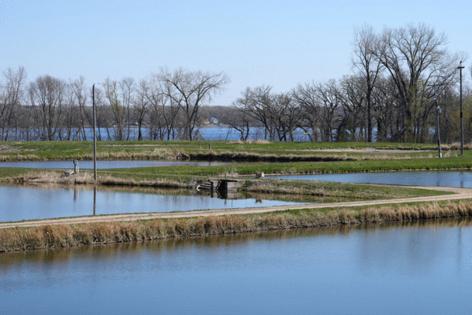Audit finds 55-year lapse in DNR's reporting of land inventory
Published in Science & Technology News
The Department of Natural Resources does a good job selecting land to acquire, but the process takes too long and the agency has gone 55 years without the legislatively required reporting of an inventory of DNR-managed land, according to the Office of the Legislative Auditor.
The agency’s failure to publicly report its land holdings, as required under a law passed in the 1970s, garnered the most attention from lawmakers Friday when the office presented an evaluation of how well the agency complies with land acquisition processes and reporting requirements.
As part of the biennial inventory, the DNR is supposed to report on additional property the department wishes to acquire. Of Minnesota’s 51 million acres of land, the state controls 11% of it and DNR manages all but 1% of that slice.
“We accept the failure,‘’ DNR Assistant Commissioner Bob Meier told members of the Legislative Audit Commission. “I apologize that we’ve never done this before,‘’
Meier said the DNR wants the Legislature to repeal the law requiring the biennial inventory of state holdings because the information is publicly available in other formats.
His mea culpa didn’t sit well with several lawmakers. Meier, a long-time executive at DNR, said he never knew the requirement existed.
“It’s shocking that decade after decade after decade the DNR isn’t doing what it is required to do,‘’ said Rep. Duane Quam, a Republican.
Quam said it’s disappointing and disingenuous for the DNR to say that the biennial reporting requirement should be repealed because it would be an administrative burden to fulfill. On the other hand, Quam said, the agency is telling lawmakers the information is “already out there, you can find it.”
“I’m worked up,‘’ he said at the hearing.
GOP Sen. Mark Koran said residents and lawmakers need the historical information that a land inventory would provide every two years. He also expressed displeasure the DNR failed to report to the Legislature, as required, the land transactions it made in fiscal year 2023 and fiscal year 2024.
The additional lapse was reported in the audit along with a finding that the DNR’s Fiscal 2022 land acquisition report did not indicate all purchases and sales.
Sen. Steve Drazkowski, a Republican, suggested to Meier that the DNR get caught up on its annual reporting requirement as soon as possible. If the DNR wants to kill the decades-old land inventory mandate, the agency should “come forward with a new proposal’’ instead of requesting a straight repeal, Drazkowski said.
Auditors surveyed various stakeholders in DNR land deals, including staff members, to collect their opinions on the DNR’s handling of the transactions. Asked if the DNR does a good job selecting land to acquire, 63% of landowners said they agree or strongly agree. Partner organizations, including nonprofits that help convey some of the land, answered the question similarly. Eighty percent of DNR staff agreed or strongly agreed that the agency does a good job selecting land to acquire.
But when stakeholders were surveyed for their opinions on the duration for making land deals, the majority of all respondents said they disagree or strongly disagree that DNR’s process for acquiring land concludes within a reasonable time frame.
The audit team looked at 234 transactions completed from 2020 through 2024. The median length of acquisition was 638 days, or 21 months.
The report quoted an unnamed DNR staffer as saying overly burdensome due diligence steps “cause delays that are almost comical.‘’
The evaluation noted that the DNR is working with its partner organizations and Lessard-Sams Outdoor Heritage Council to accelerate the work. That “continuous improvement’’ project started in 2023.
A long-standing issue in DNR land deals is that certain counties object to further land acquisition by the agency. Auditors surveyed counties, finding that 43% of the respondents said the amount of land DNR is trying to acquire in their county is too much. Another 55% said the amount is right and 3% of respondents said it’s too little.
The evaluation team was headed by Deputy Legislative Auditor Jodi Munson Rodriguez.
©2025 The Minnesota Star Tribune. Visit startribune.com. Distributed by Tribune Content Agency, LLC







Comments